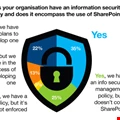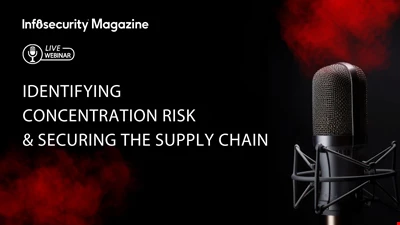Infosecurity News
Samsung Android devices vulnerable to lockscreen bypass
Hard on the heels of Apple iPhone lock screen bypass woes, it turns out that Samsung devices running Android version 4.1.2 have a similar bug, which allows someone to get around the screen lock.
Trolling – academics look at an online sub-culture that verges on bullying
A new study by Nottingham Trent University suggests that nearly 60% of online gamers have at some stage indulged in activity described by the university as ‘intentionally provoking or antagonizing users in an online environment’ – that is, trolling.
New survey suggests face-to-face is more important than technology for bank customers
A YouGov survey of more than 6500 people in France (1010), Germany (1053), Hong Kong (518), Spain (1006), the USA (1000) and the UK (2060) suggests that bank customers favor access to a local branch above technology such as mobile banking and social network banking.
Stuxnet has been attacking Iran since 2005
The Stuxnet malware used to take Iran's nuclear program offline in 2009/2010 is actually two years older than previously thought.
YAJ0 – yet another Java zero-day
Researchers have discovered yet another Java zero-day vulnerability being successfully exploited in the wild against browsers that have Java v1.6 Update 41 and Java v1.7 Update 15 installed.
Additional research also points the finger at China
A new paper presented at the RSA Conference in San Francisco this week adds further evidence to the growing belief that China is the source of a large amount of APT cyber espionage against the West.
ISF Threat Horizon 2015 Report: The findings
But one new and emerging threat for business is reputation – cyber breaches don’t merely lose data, the associated loss of reputation reduces corporate share value.
Par:AnoIA leaks 14 GB of data from Bank of America
Par:AnoIA (Potentially Alarming Research from the Anonymous Intelligence Agency) has released 14 GB of data that it claims was lifted from the Bank of America.
Android spambot, blended threats top mobile spam threats in 2013
Mobile users are increasingly likely to be spammed. New research has revealed there were more than 350,000 unique unsolicited mobile spam variants in 2012, with the highest churn rate in December with more than 53,000 unique variants alone.
RSA 2013: CSA provides legal resources for cloud computing; issues list of top threats
The Cloud Security Alliance has announced several initiatives at this week’s RSA Conference in San Francisco that range from privacy issues, legal information, and major threats relevant to the cloud security landscape.
New emergency bug fixes for Adobe Flash
Adobe has released a new emergency out-of-band patch for Flash – the third Flash update this month and the fourth this year – fixing two vulnerabilities currently being exploited against Firefox, and a third vulnerability that could potentially be exploited.
RSA 2013: The grey area of active defense – live manipulation of Kelihos
A live demonstration of active defense at RSA this week highlights the current debate on just how active (for which read ‘offensive’) companies can be in defending their networks. Laws to prevent hacking may also protect the hackers.
RSA 2013: Interview with security evangelist Stephen Cobb
Infosecurity Editor, Eleanor Dallaway, spent a fascinating 45 minutes picking the brain of ESET security evangelist, Stephen Cobb at RSA in San Francisco.
RSA 2013: Compliance Equals False Sense of Security, Says Vormetric
Compliance is responsible for a false sense of security, Alan Kessler, President & CEO, Vormetric, told Infosecurity at the RSA Conference in San Francisco, February 26 2013.
RSA 2013: Aadhaar, the Indian Electronic Identity Scheme, will change lives, says RSA keynote presenter
During the keynote sessions at the RSA conference in San Francisco today, Srikanth Nadhamuni, Head of Technology at UID Authority of India and CEO at Khosla Labs, presented Aadhaar, the identity scheme in India.
Technology moves to make cloud synchronization / storage secure
One of the most worrying security concerns to come out of the growth of cloud computing and BYOD has been the extensive adoption of third-party file synchronization services, typified by Dropbox and Box, but also including other cloud services such as Drive and SkyDrive.
Big data analytics for anomaly detection in security
Big data analytics first evolved for use in marketing: by understanding the relationships between customers and actions, better marketing can be developed. Now the practice is being applied to security: by understanding the relationship between network anomalies and events, better security will evolve.
NBC hack serves Citadel malware to visitors
NBC has become the latest high-profile target for a cyber-attack, with its website, NBC.com, becoming compromised by the Citadel financial malware kit long enough to start serving malware to visitors before being corrected.
Latest (ISC)2 Workforce Study Shows Lack of Skilled Infosec Professionals and Developers
The problem is that not enough skilled people actually get into the profession; and all too often security is deemed to be separate from software development. These are the key findings of the sixth and latest study among the existing global security workforce conducted by (ISC)2, Booz Allen Hamilton and Frost and Sullivan.

A hacker's dream: two-thirds of SharePoint users have no security policy
Even though Microsoft SharePoint is widely deployed throughout enterprises and SMBs as a collaboration platform, a shocking two-thirds of SharePoint-using companies in a recent survey have admitted to having ‘no active security policy’ in place for the application.



